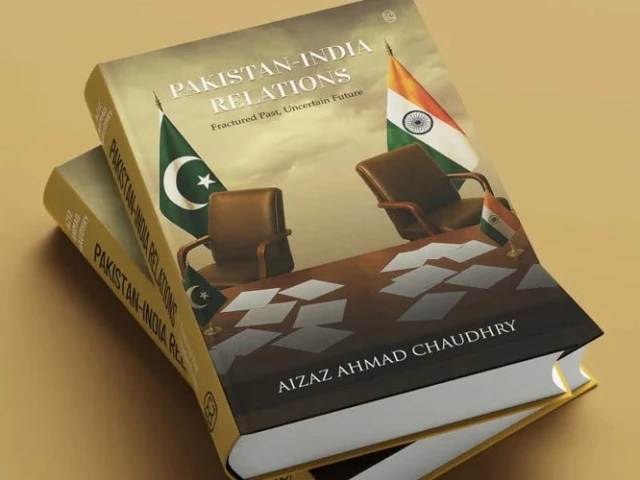Moot dissects fractured Pakistan-India ties
Ambassador Aizaz Chaudhry's new book outlines pathways for more stable future

The Pakistan Institute of Development Economics (PIDE) on Thursday hosted a thought-provoking book talk on Pakistan-India Relations: Fractured Past, Uncertain Future by Ambassador Aizaz Ahmad Chaudhry, former Foreign Secretary and former Ambassador to the United States. The session, moderated by PIDE Vice Chancellor Dr Nadeem Javaid, drew scholars, students, diplomats, and policy practitioners.
Opening the discussion, Dr Javaid introduced Ambassador Chaudhry as a seasoned diplomat with over three decades of service in key capitals — including The Hague, New York, Washington, and Islamabad — and highlighted his long involvement in the Pakistan — India peace process across successive political eras, from Vajpayee-Musharraf to Manmohan Singh-Modi.
Ambassador Chaudhry said his book departs from personal memoir in favour of a rigorous analytical study exploring why Pakistan and India remain locked in an adversarial relationship nearly eight decades after independence. He explained that the work examines whether the hostility is driven solely by unresolved disputes or by deeper structural dynamics shaping South Asia's most enduring rivalry.
Drawing on historical evidence and firsthand diplomatic experience, he identified four core factors that have obstructed peace: deep-rooted mistrust inherited from colonial politics; the unresolved Jammu and Kashmir dispute; the political weaponisation of terrorism to shape global perceptions; and India's longstanding pursuit of regional dominance, amplified by expanding strategic ambitions and narratives like Akhand Bharat.
He outlined how wars, crises, and derailed peace initiatives — from Lahore and Agra to Mumbai, Pathankot, and Pulwama — have reinforced antagonism rather than creating space for reconciliation. Divergent threat perceptions, domestic political pressures, and shifting global alignments, he said, have entrenched a security-centric relationship in which meaningful dialogue rarely sustains momentum.
Ambassador Chaudhry also addressed the rise of digital-age debates questioning Pakistan's very rationale. Citing independent research on the marginalization of Indian Muslims, he argued that contemporary developments have validated many original concerns behind the Pakistan movement. He stressed that while Pakistan must safeguard its defence and diplomacy, strengthening internal governance and enhancing its narrative-building capacity are equally critical.




















COMMENTS
Comments are moderated and generally will be posted if they are on-topic and not abusive.
For more information, please see our Comments FAQ